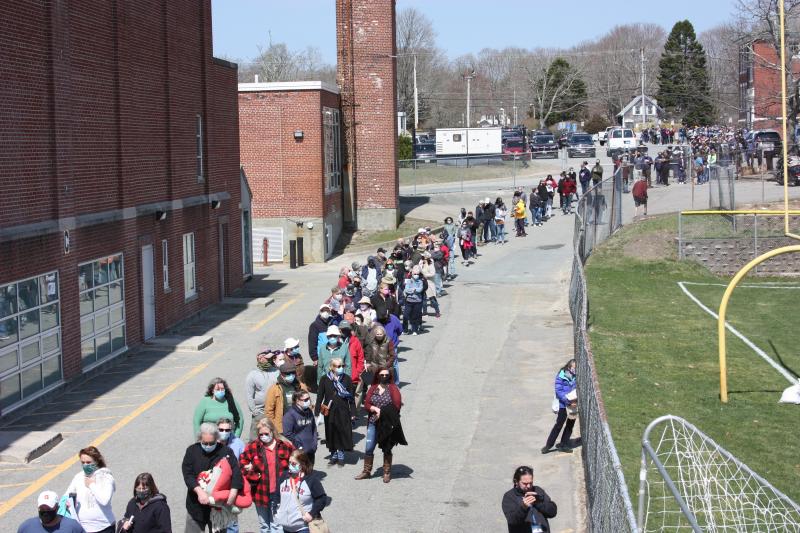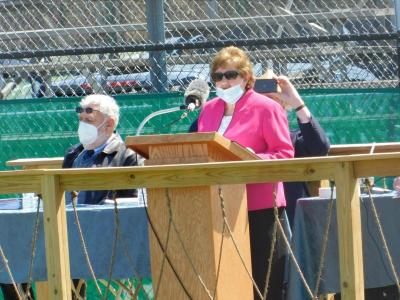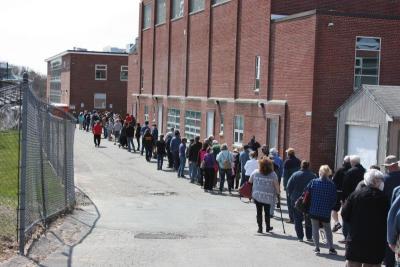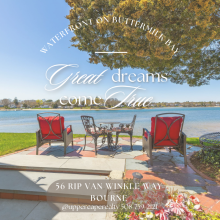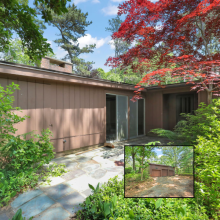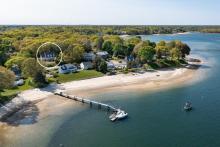Controversial ‘Hospitality District’ defeated at town meeting
The controversial rezoning article that would create a “Hospitality, Recreation and Entertainment” overlay district for 756 acres of land in East Wareham was defeated by a landslide vote, with 85 percent of those who weighed in voting no.
A total of 813 people voted no, while 141 people voted yes.
The district was proposed by the Notos Group, a Quincy-based developer, and would have allowed large mixed-use developments on parcels of at least 100 acres.
Voters began checking in at 11 a.m., and at noon, when the meeting was scheduled to start, one of two lines stretched nearly to Marion Road. Town Moderator Claire Smith postponed the meeting’s start to 12:30, and then began the meeting while those in line continued to filter in, saying that she was sure there would be plenty of time during the discussion of the article for those remaining to make it in.
“I know we have a lot of people who are attending today for the very first time,” Smith said as she explained how the meeting would progress. She said she’d been attending Town Meeting for many years herself and sometimes still found it confusing. “I’m going to try my very best to handle this meeting so that you understand what we’re doing when we’re doing it.”
Town Administrator Derek Sullivan was unable to attend the meeting due to a family emergency, so Selectman Peter Teitelbaum read a letter from him while introducing the article.
“After today’s vote — no matter the outcome — we will all still be friends, family, neighbors, and a fantastic community,” Sullivan wrote. “So please remember that although we disagree, we don’t have to be disagreeable about it.”
Officials’ requests for civility were ignored by some, as outbursts were plentiful during the discussion — despite Smith’s best efforts to control the crowd.
On several occasions, those who spoke out against the rezoning article were met with loud cheers.
One speaker attempted to draw attention to a sign — a chart she’d created as a visual aid — and was quickly told such an action violated the meeting rules. Another voter verbally sparred with Smith until he was told he would be removed from the meeting if the behavior continued.
“We are not going to have these outbursts,” Smith warned. “I realize this is a passionate article. I realize everyone has a very definite opinion. But we’re not going to let this meeting get out of control. So I’m giving you all fair warning.”
Numerous attendees spoke about the potential negative impacts of large-scale commercial development in the area, including water pollution, the displacement of animals, light pollution, and increased traffic on Glen Charlie Road.
Marianne Jeneski said that what she loves about her home and about Wareham — the nature, the quiet residential Glen Charlie Road neighborhood — would be threatened by development.
“A commercial development would be disastrous for the hundreds of us who call this area home, and add increased stress to all of our busy lives,” Jeneski said.
One opponent said that development would displace many animals, and could bring invasive species to the area. She said her neighborhood has been plagued by rats since the development at Redbrook.
Ed Pacevich said that he was concerned about the amount of wastewater large-scale development would produce, especially given that the town’s sewer plant is already operating nearly at capacity.
Several speakers said they felt developers should utilize the many abandoned or blighted properties around town rather than clearing forests.
A few speakers were concerned about the possibility that the new district could host “adult” uses.
Proponents of the district — who numbered far fewer than those against it — said that a large-scale commercial development would increase the town’s tax revenue, therefore decreasing the burden on homeowners.
Nazih Elkallassi spoke in favor of the rezoning, and said that the land could be the site of an up to 600 unit development under Chapter 40B, a law that allows developers to skirt some local regulations if the development includes a percentage of affordable housing.
Discussion dragged on until about 3 p.m., at which point restless voters began calling out to demand the vote go forward without allowing further discussion. Although those shouted requests also violated the meeting rules, Smith eventually moved to end discussion and conduct the vote.
To pass, the article needed to be approved by two-thirds of voters, according to the Planning Board. The Notos Group contended that it needed only a simple majority to pass.
The yes votes — 15 percent — fell far below either threshold.
After the meeting, Tom O’Connell, the founder and managing member of the Notos Group, said, “We are grateful and proud for the respectful way in which our supporters conducted themselves. We still believe in Wareham and the site. We will take stock of the situation and consider our options.”



